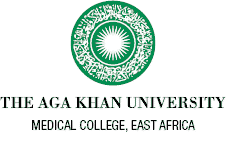During the rotation the resident will be able to:-
Identify the Gynaecology case mix in a public sector referral hospital Participate in the assessment, surgical management and follow up of patients with gynaecological malignancies and benign gynaecological disease Undertake a situation analysis that includes health information systems, logistic and personnel management, quality of care and corporate governance.
Duration of Rotation:
8 weeks.
Evaluation of Residents:
The Residents learning log shall be maintained and will guide formal feedback as well as in-depth sharing of learning experiences between faculty and each individual resident. End of rotation shall be evaluated using the resident interim summative assessment format that is in place. Residents will also be required to issue a comprehensive report on critical issues observed, experiences and lessons learnt . Research In our University Hospital a number of research studies are underway and it is considered a departmental responsibility for all staff to contribute to recruitment and retention of participants into research studies. Residents should familiarize themselves with the protocols of ongoing studies and make every effort to support these studies. There is increasing scope for ‘ spin off ’ resident research projects using the infrastructure of funded studies.
Selection criteria
The process starts with an advertisement in the local dailies. The applicant must hold MBChB or equivalent and they must have completed internship training in a recognized institution and registered as a medical practitioner by the Kenya Medical Practitioners and Dentists Board or another mutually recognized body. A rigorous selection criterion is in place to ensure that the best candidates are selected to join the program. Selected candidates are requested to attend a three-day orientation program arranged by the Director of Post Graduate Medical Education. This orientation is conducted by the Faculty, the Post Graduate Medical Office and by the Hospital administration during the month of January
Assessment and feedback
Assessment is an individual process that aims at identifying the presence or absence of learning in the learner arising from educational input. The Obstetrics and Gynaecology residency training program is tailored towards criteria that are set in the curriculum. The curriculum precisely states the knowledge, skills and attitudes that an individual should have acquired at the completion of each course. These criteria are set standards towards which an individual can be measured.
Evaluation is concerned with obtaining information about the individual learner’s progression and attainment. It examines the strengths and weaknesses of the learner and can include factors that influence learning. The program’s assessment is built along two broad categories; formative and summative. Formative assessment is also referred to as continuous in-training assessment. Its purpose is to give continual feedback on performance and identify through feedback further educational needs and areas that may require improvement. The feedback process is a constructive positive interaction between the learner and a member of faculty.
This process of feedback will occur on a monthly basis between the resident and a designated supervisor. In keeping with the University philosophy of self-directed learning, a number of tools have been designed to help you guide and regulate your own learning. These tools are the Residents Learning Log, the Reflective Learning Diary, the Personal Significant Event Recording and the Mutually Agreed Statement of Training (MAST). You will be introduced to these tools during the orientation week.
In addition, a surgical skills rating scale will be completed by faculty and theatre staff who observe you perform surgical procedures immediately after the procedure. The ratings will be shared with your supervisor in order to assess for evidence of progress in various surgical skills on quarterly basis.


